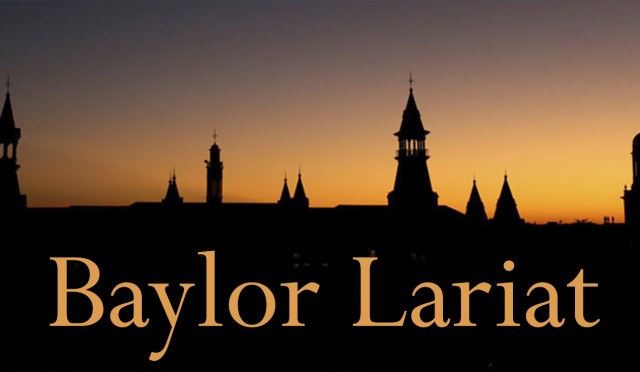By Reubin Turner
City Desk Editor
The student body’s Electoral Commission announced Wednesday that non-campaign workers are allowed to use their personal social media accounts in order to campaign for candidates in the general student body elections.
This comes after their ruling Tuesday at a mandatory candidate meeting, when Electoral Commissioner Sarah Parks, a senior, said all Baylor students would be prohibited from using personal social media accounts to help the candidates campaign.
In the email, the electoral commissioner and a quorum of the commission ruled it permissible for non-campaign workers to use personal social media accounts to publicize support for candidates, an alteration to the commission’s interpretation of the code on Tuesday’s mandatory candidate meeting.
At the meeting, the university’s Electoral Commission gave strict guidelines for the candidates to adhere to during the campaign season, which included specific prohibitions on the use of all personal social media accounts in relation to campaigns.
In Wednesday’s email, however, the commission altered their stance after several concerns were raised by candidates about their ability to campaign.
“A non-campaign worker may change their Facebook profile picture or cover photo to openly support a candidate’s campaign and may make written statements in Facebook posts on their own wall endorsing a particular candidate, granted that all of their activity refrains from marring the dignity of Baylor University or its campus,” stated Park in the email to the candidates on behalf of the commission.
The commission did not, however, change their divisive position regarding the allowance of campaign workers and candidates to use personal social media as a campaign venue.
According to section 3.2.6 of the Electoral Code, campaign workers are defined as those who have been designated as such by candidates on a list, to be turned in to the commission no less than 24 hours before the candidates campaign begins.
Port Barre, La. sophomore Lindsey Bacque said the alterations to the commission’s opinion do not adequately address concerns raised by candidates. Bacque also said the commissioner’s interpretation may be in direct violation of Article 10, Section 4 and Part 1 of the Student Body Constitution, known as the Freedom of Inquiry and Expression clause.
“Placing this restraint on the candidates is unconstitutional, and the constitution trumps the electoral code,” Bacque said. She also said that is the commissioner wanted to make changes to the changes to the code, she would had of have done so prior to the mandatory candidate meeting.
Bacque also said the Senate is the only body with the authority to approve changes to the Electoral Code by a majority vote, according to the constitution.
At the Student Senate meeting tonight, the Senate will discuss clarifying parts of the electoral code.
“We’re not making changes. We just feel we need to clarify some things that otherwise may be confusing,” Bacque said.
Lombard, Ill., senior Danny Huizinga said the distinction the commission made this year, which restricts candidates and campaign workers from using personal social media accounts, is unprecedented.
“The update from the commission is a step in the right direction, but there are still parts of the decision that seem to incorrectly interpret the electoral code,” said Huizinga, who is a campaign
worker this semester.
Huizinga worked as a sophomore on the campaign of former Student Body President Wes Hodges. Huizinga insisted that during the campaign, Hodges and several other candidates (as well as their campaign workers) used their personal social media accounts to campaign, despite claims from Park at the Tuesday meeting that the policy has always been in place.
When Huizinga attempted to bring this point to the attention of the commission during Tuesday’s meeting, Park repeatedly declined to review the information, as previously reported by the Lariat.
During the meeting, Woodville junior Kristyn Miller, the external vice president, asked the commission what the punishments were for those who broke these rules concerning social media.
“We’re not the police,” Park said. But if reported, the commission would call the candidate to a hearing to decide further action, she said.
“I would hope the candidates wouldn’t, but if they did, the candidate would have to go through a hearing with the Electoral Commission, followed by possible action by Judicial Affairs,” Park said.



